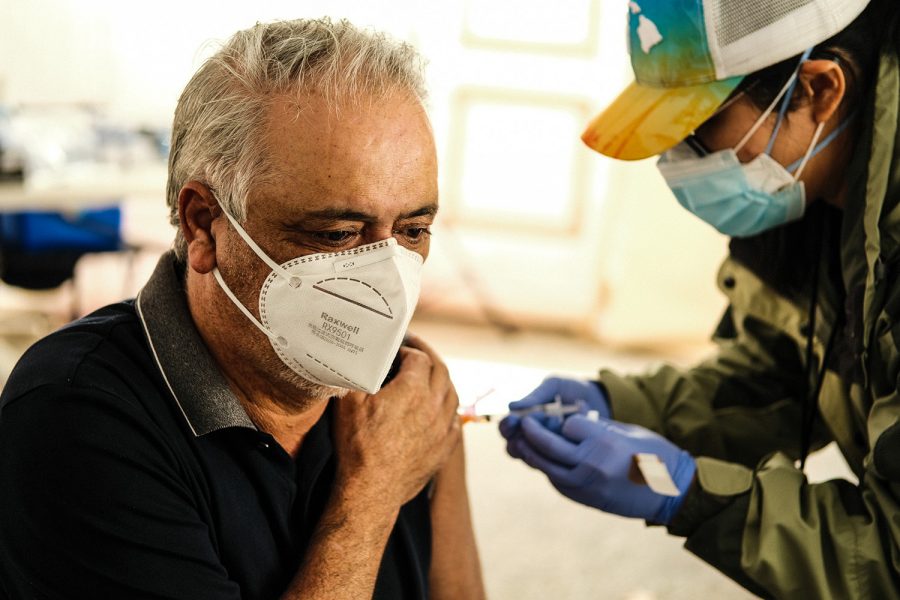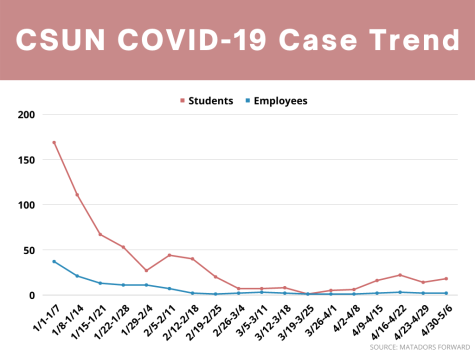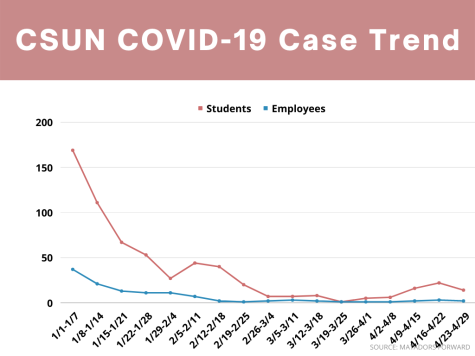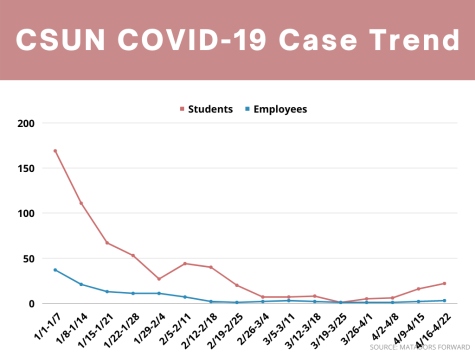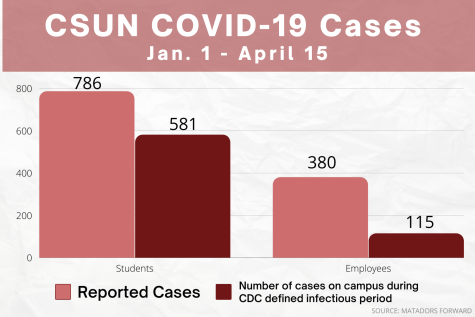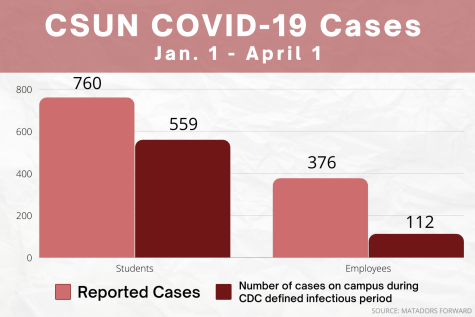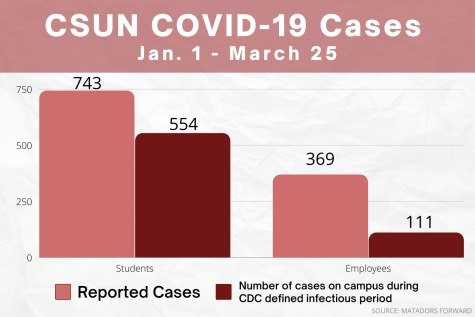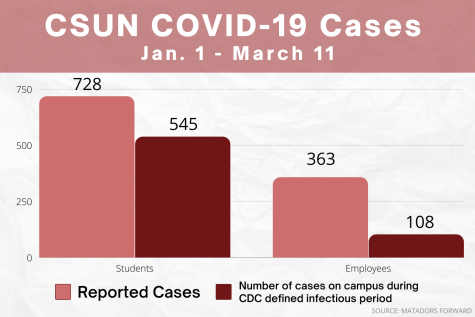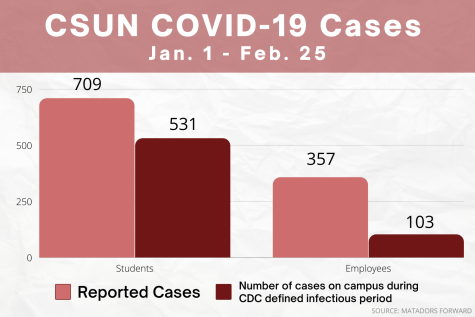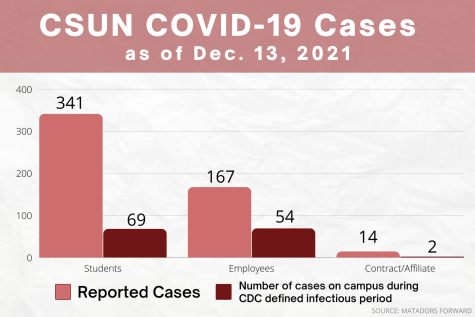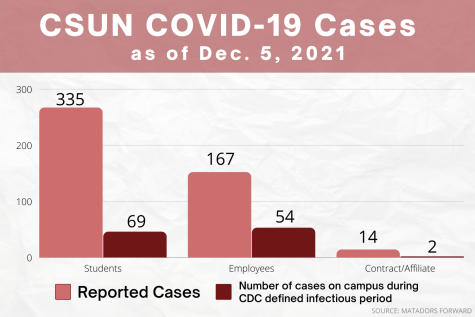LA Department of Public Health opens new sites in a hopes to expand vaccine outreach
Mike Azimi receives his second dose of the Moderna vaccine from Jocelyn Woon at Pierce College’s COVID-19 testing and vaccination center n Woodland Hills, Calif., on Feb. 16, 2021.
February 19, 2021
The Los Angeles Department of Public Health opened hundreds of small vaccination sites and one supersite at California State University of Los Angeles this week in response to the racial disparity in vaccine recipients, especially among Latinos.
Latinos are dying at a higher rate from COVID-19, accounting for 59.7% of COVID-19 cases and 49.6% of deaths statewide.
As of Friday, over 1.7 million vaccines have been administered in L.A. County. Latinos account for just 23% of those vaccinated.
Confidence in the vaccine and access to it are contributing factors to the disparity.
“Most patients refuse to get the vaccine because they hear that it’s dangerous, that it’s killing people. We’re in East L.A., so they only hear the bad,” said Norma Garcia, medical assistant at Los Angeles Garfield Medical.
Garcia said she tries to tell patients “to see the good parts” of the vaccine. She also said that residents would be more comfortable going to a neighborhood clinic such as theirs than to a large supersite.
“It’s both an issue of access and trust,” said Barbara Ferrer, director of the L.A. Department of Public Health, on Saturday.
In order to address the inequity, many of the small sites opening are in places residents already trust, such as pharmacies, clinics and federally qualified health centers, said Ferrer.
“My hope is we build out this vast network so that people will feel pretty comfortable that there’s a place very close to them where they can get vaccinated,” said Ferrer.
A nationwide Centers for Disease Control and Prevention survey shows that Hispanic and Black individuals are at an increased risk for COVID-19-related death but are also the most likely to say they don’t intend on getting vaccinated. The most common answer people cited for not wanting the vaccine is concern about its safety.
